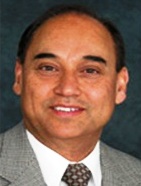
Kuldip Sidhu, PhD
Department of Psychiatry
University of New South Wales, Director, Stem Cell Lab, Australia
Dr. Kuldip Sidhu, is an Associate Professor and the Director of the Stem Cell Laboratory (SCL) at the Faculty of Medicine in the University of New South Wales, Australia. His post doc training is from St Louis MO USA (1979-80) in assisted reproductive technology and he also worked with Prof James Thompson, Wisconsin USA (2000) who produced the first human embryonic stem cells in 1998.
His research focus is on neural stem cells derived from both the embryonic and non-embryonic sources for developing future cell therapies for various neurodegenerative diseases, like Alzheimer’s, Parkinson’s and other neuronal diseases. He has established a state-of-the-art facility to study the cell and developmental biology of stem cells. SCL has expertise to culture, propagate, differentiate, engineer and transplant in animal models the neural stem cells from various sources like human embryonic stem cells, skin-derived neuroprogenitors and human mesenchymal stem cells from bone marrow. In addition, he has expertise in the derivation of new human embryonic stem cell lines including their clonal propagation. His lab was first to produce two hESC lines, Endeavour (E) 1&2 from Australia and E2 is listed on NIH registry USA for distribution. SCL has seriously embarked on iPS Technology and produced over 100 iPSC clones from Alzheimer’s patients for studying the disease processes and drug discovery.
A/Prof Sidhu has produced two books – the latest one (2012) on stem cells, thirteen book chapters, nine review chapters, two international patents, four proprietary items and one hundred and seventy original research papers including abstracts in journal of repute including one in Nature Biotechnology (2011) and all dealing with mammalian cell and developmental biology including stem cells. He shared this paper in Nature Biotechnology with Noble Laureate (2012), Prof Yamanaka. He has served on the International Society of Stem Cell Research Sub Committee and the NHMRC Cell Therapy Advisory Committee; he is a member of the editorial board of International Stem Cell Journals, the open stem cell journal and recent patent on regenerative medicine. He is on the expert panel on iPSC research for the European Union. He is president of the local chapter and member of the board of Society for Brain Mapping and Therapeutics, USA. He was the chair of the program committee of the 4th annual meeting of the Australasian society of stem cell research held in Sydney 2011. He has eight national and five international active research collaborations and including three with industry. He has widely travelled around the world and presented invited lectures, chaired sessions in scientific meetings, conferences. He is recognised by many awards e.g. Medallist for outstanding research from Indian National Science Academy 1981, Best book prize, 1996, Medal for best presentation in an international conference on frontiers of reproductive biology, 1989, Best invention prize, Australia, 2007, Finalist of Eureka prize 2009, Advanced Innovation Award (Finalist), UNSW 2012. He has produced 9 PhD, 2 MSC, 4 HONS students and some of them are also recognised with Dean’s list and McConaghy Prize. His passion in science is as good as in Tennis.
Dr. Sidhu's research focus is on neural stem cells derived from both the embryonic and non-embryonic sources for developing future cell therapies for various neurodegenerative diseases, like Alzheimer’s, Parkinson’s and other neuronal diseases. He has established a state-of-the-art facility to study the cell and developmental biology of stem cells. SCL has expertise to culture, propagate, differentiate, engineer and transplant in animal models the neural stem cells from various sources like human embryonic stem cells, skin-derived neuroprogenitors and human mesenchymal stem cells from bone marrow. In addition, he has expertise in the derivation of new human embryonic stem cell lines including their clonal propagation. His lab was first to produce two hESC lines, Endeavour (E) 1&2 from Australia and E2 is listed on NIH registry USA for distribution. SCL has seriously embarked on iPS Technology and produced over 100 iPSC clones from Alzheimer’s patients for studying the disease processes and drug discovery
Neurological Disorders received 1253 citations as per Google Scholar report